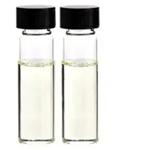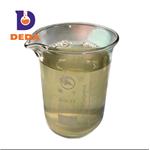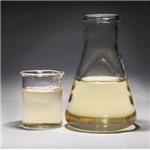A substance rich in many foods - oleic acid
Nov 21,2023
Description
Oleic acid (cis-9-octadecenoic acid) is an omega-nine fatty acid and has the formula C18H34O2 (CH3(CH2)7CHCH(CH2)7COOH). Although commercial samples may be yellowish, it is an odorless, colorless oil. The salts and esters of oleic acid are called oleates. It is part of many oils and is thus used in many artificial foods and for soap.

Source
It is the most widely distributed natural fatty acid and is present in practically all lipids. It is the primary fatty acid in olive oil pressed from the ripe fruit of the olive (Olea europaea). Oleic acid makes up 55–80% of olive oil, 15–20% of grape seed oil, and sea buckthorn oil (Li, 1999). In general, edible oils such as soybean oil, palm oil, and corn oil contain about 10–40% oleic acid. Among them, olive oil contains 75% oleic acid, more than 5 times higher than safflower oil[1]. Oleic acid is best obtained from a vegetable and is a valuable starting material especially. Oleic acid can be found naturally in numerous food sources, including edible oils, meat (beef, chicken, and pork), cheese, nuts, sunflower seeds, eggs, pasta, milk, olives, and avocados.
Use
Oleic acid is used as an excipient in pharmaceuticals and an emulsifying or solubilizing agent in aerosol products. It may hinder the progression of adrenoleukodystrophy, a fatal disease that affects the brain and adrenal glands, and it may help boost memory. Oleic acid may also be responsible for olive oil's hypotensive (or blood pressure-reducing) effects.
Oleic acid (18:1) is considered highly stable to oxidation and can enhance the activity of antioxidants and antipolymerization agents. In combination with antioxidants like tocopherols, it can be blended with other oils to prevent oxidation[2].
Oleic acid is a C18 monounsaturated fatty acid with a double bond at C9, activating G protein-coupled receptors, including ERK1/2, to induce cancer cell proliferation[3]. Samson's experiments indicate that oleic acid, cholesterol, and linoleic acid may act as potential molecular determinants and initiators of angiogenesis for the proper balance of acceleration and inhibition signaling that controls the vascular microenvironment.
References
[1] Choi, Shin Geon, S. R. Won, and H. I. Rhee. "Oleic Acid and Inhibition of Glucosyltransferase. " (2010).
[2] Hernandez, E. "Specialty Oils: Functional and Nutraceutical Properties." Functional Dietary Lipids (2016):69-101.
[3] Samson, Faith P, et al. "Oleic Acid, Cholesterol, and Linoleic Acid as Angiogenesis Initiators." ACS Omega 5.31(2020):20575-20585.
- Related articles
- Related Qustion
- The Uses of Oleic Acid Nov 24, 2022
The passage introduces the uses of Oleic Acid.
- Preparation and use of oleic acid Feb 18, 2022
This article is about the physical and chemical properties of oleic acid and the description of its preparation and use
The space lattice of zinc belongs to the hexagonal system, and its closed-packed hexagonal lattice has lattice constants of a=0.2659 nm and c=0.4937 nm (25℃).....
Nov 21,2023Inorganic chemistryThe space lattice of Zinc selenide ZnSe belongs to the cubic system, and its zinc-blend type structure has a lattice constant of a=0.56676 nm.....
Nov 21,2023Inorganic saltsOleic acid
112-80-1You may like
- Acid phosphatases and Phosphatase, Acid from wheat germ
May 27, 2024
- The structure and Biological function of Cytochrome C
May 17, 2024
- Is CJC-1295 DAC same as CJC-1295?
May 16, 2024
- Oleic acid
-

- $50.00 / 1kg
- 2024-05-29
- CAS:112-80-1
- Min. Order: 1kg
- Purity: 99%
- Supply Ability: 20Tons
- Oleic acid
-

- $15.00 / 1kg
- 2024-05-29
- CAS:112-80-1
- Min. Order: 1kg
- Purity: 99.5
- Supply Ability: 10 ton per month
- Oleic acid
-

- $10.00/ kilogram
- 2024-05-27
- CAS:112-80-1
- Min. Order: 1kilogram
- Purity: 99%
- Supply Ability: 40tons





